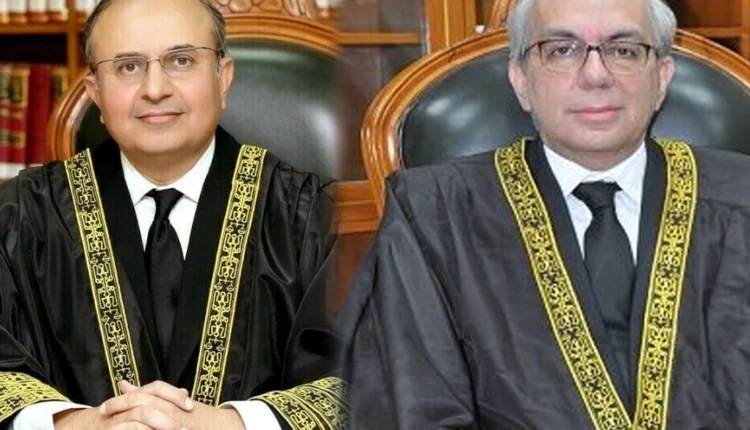Justices Mansoor, Munib pen concerns with JCP’s authority
Two senior judges of the Supreme Court of Pakistan, Justice Syed Mansoor Ali Shah and Justice Munib Akhtar, have issued a joint clarification on the powers of the Judicial Commission of Pakistan (JCP).
The judges contend that the JCP is not the proper body to decide on the formation of a full court to hear challenges related to the 26th Constitutional Amendment.
The statement came in the form of a detailed letter, in which the judges addressed the ongoing debate and public speculation surrounding the absence of a full court bench in the high-profile constitutional case. The 26th Amendment, which has drawn significant attention and controversy, is currently under judicial scrutiny, and many had questioned why the Supreme Court had not opted to form a larger bench comprising all available judges.
In their written explanation, Justices Shah and Akhtar maintained that while the issue of constituting a full court is certainly important in cases of national constitutional significance, the matter does not fall under the jurisdiction of the JCP.
The Judicial Commission is constitutionally mandated to deal primarily with judicial appointments and not the internal functioning or bench formations of the Supreme Court, the letter said.
“The Judicial Commission has a specific role defined by the Constitution and does not have the mandate to intervene in decisions regarding which bench should hear a particular case,” the letter reads. The judges also emphasised that such decisions fall squarely within the administrative domain of the Chief Justice of Pakistan (CJP), who exercises discretion in the constitution of benches.
The judges’ clarification comes amid increasing calls from political figures, legal experts, and civil society activists demanding a full court hearing in the 26th Amendment case, arguing that the matter is of profound constitutional importance and affects the balance of power between the federation and the provinces.
However, Justices Shah and Akhtar have signaled that while they recognise the seriousness of the issue, there is a clear legal distinction between public perception and constitutional procedure. They warned against politicising judicial processes and reiterated the need to uphold the independence and sanctity of the court’s internal mechanisms.
The Supreme Court has not yet announced whether a larger bench will be constituted, but the current explanation by the two senior judges sheds light on why a full court has not been formed until now.




Comments are closed, but trackbacks and pingbacks are open.